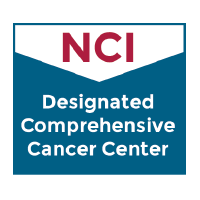
Esophageal Cancer
Cancer of the esophagus is divided into two major types: squamous cell carcinoma and adenocarcinoma, depending on the type of cells that are malignant.
Squamous cell carcinomas arise in cells that line the upper two-thirds of the esophagus. Adenocarcinomas usually develop in the glandular tissue in the lower part of the esophagus. The treatment of these types may be similar but depends upon the details of each individual case.
Our Approach to Esophageal Cancer
UCSF's highly trained gastrointestinal oncologists and surgeons provide the most advanced and effective treatments available for esophageal cancer. Our team will give you a precise diagnosis and design a personalized treatment plan, which may include surgery, chemotherapy, radiation, laser therapy or photodynamic therapy (targeting the cancer with drugs that destroy the malignant cells when exposed to a special light). In some cases, patients need to have the esophagus removed. Our hospital is one of a select group of specialty centers performing minimally invasive esophagectomies – esophagus removal using small incisions, miniature instruments and an endoscope. This option will minimize discomfort and speed recovery time.
In addition, we offer continued care for patients who have completed treatment for gastrointestinal cancers. Our survivorship clinic aims to maximize quality of life and minimize risk of recurrence.
Awards & recognition
-

Among the top hospitals in the nation
-

Best in Northern California for cancer care (tie)
-

Designated comprehensive cancer center
UCSF Health medical specialists have reviewed this information. It is for educational purposes only and is not intended to replace the advice of your doctor or other health care provider. We encourage you to discuss any questions or concerns you may have with your provider.





